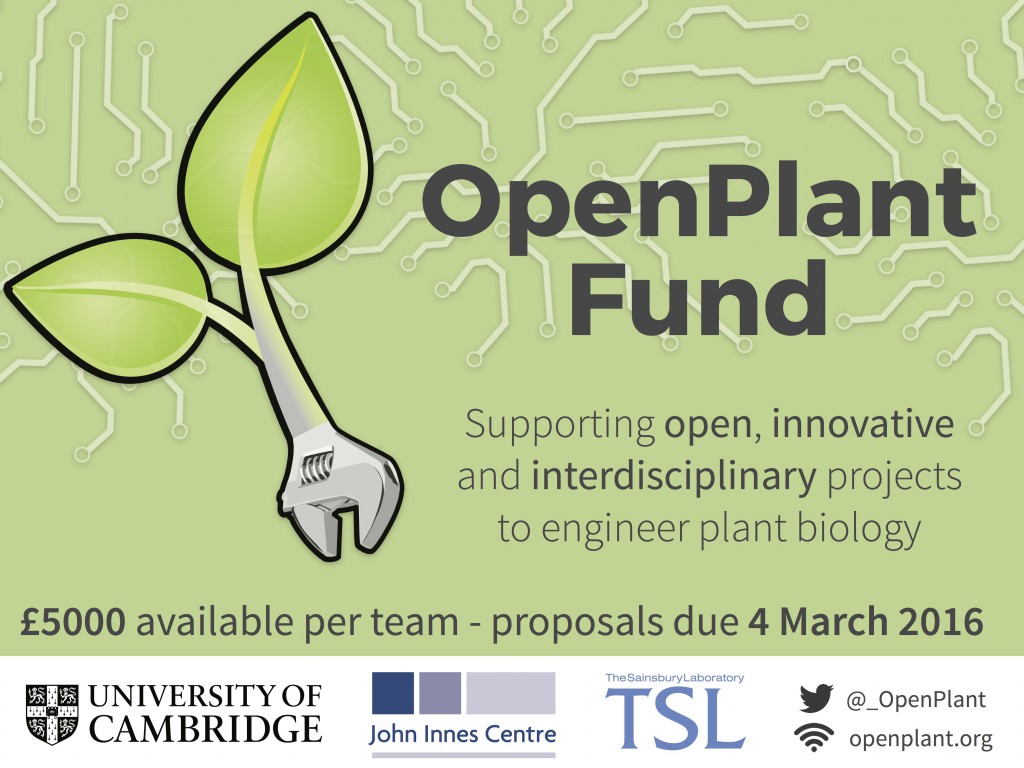Find out more and register >>>
Supported by the OpenPlant Fund
Interested in using mining technologies for synthetic biology?
Content mining technologies hold much potential for maximising scientific discovery and the reuse of research through automated searching, indexing and analysing of scientific literature.
In this workshop, we aim to educate and engage technologists and biologists who are interested in using mining technologies for synthetic biology; to better enable access to research literature and data in plant synthetic biology.
The hackathon on Day Two aims to improve searching and indexing of plant synthetic biology texts through open source technology platforms developed by the Grassroots Genomics project at TGAC and the ContentMine platform from the University of Cambridge.
Target Audience
Best suited to biologists and bioinformaticians who have some experience of using command line tools or the enthusiasm to pick this up! As such, formal programming experience is not a requirement, but you may find it useful to attend the Software Carpentry Bootcamp held at TGAC prior to this event.
Course prerequisites: Basic prior knowledge of programming concepts.
Course details
The registration fee is £50.00 (plus booking fee of 2.13 per cent) – refundable on attendance (minus booking fee) which will be processed post event.
We are also able to reimburse up to two nights accommodation with a limit of £80.00 per night (receipts required).
Scientific Organisers:
Emily Angiolini, The Genome Analysis Centre (TGAC), UK Rob Davey, The Genome Analysis Centre (TGAC), UK Richard Smith-Unna, University of Cambridge, UK
Course Faculty:
Rob Davey, The Genome Analysis Centre (TGAC), UK Richard Smith-Unna, University of Cambridge, UK
Further Details:
Venue: The Genome Analysis Centre (TGAC), UK Application deadline: Friday 26 February 2016 Participation: First come, first served

![[Closes 24 Nov 2107] Apply now to the OpenPlant Fund!](https://images.squarespace-cdn.com/content/v1/54a6bdb7e4b08424e69c93a1/1509564315902-TUO4I6QRWI9TT8UGSIAJ/OpenPlantTwitter_400x400+%281%29.jpg)

![[Closes 7 Mar 2017] OpenPlant Research Associate (Haseloff Lab)](https://images.squarespace-cdn.com/content/v1/54a6bdb7e4b08424e69c93a1/1486552818859-FH76MCA8SMFU93WB85RX/OpenPlantTwitter_400x400.jpg)


